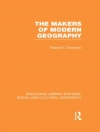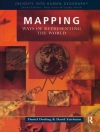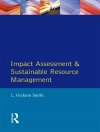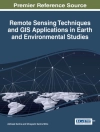The broad spectrum of topics surrounding what is termed the ‘knowledge economy’ has attracted increasing attention from the scientific community in recent years. The nature of knowledge-intensive industries, the spatiality of knowledge, the role of proximity and distance in generating functional knowledge, the transfer of knowledge via networks, and the complex interplay between knowledge, location and economic development are all live academic issues. This book, the fifth volume in Springer’s Knowledge and Space series, focuses on the last of these: the multiple relationships between knowledge, the economy, and space. It reflects the conceptual and methodological multidisciplinarity emerging from this scholarship, yet where there has up to now been a notable lack of communication between some of the contributing disciplines, resulting in lexical and other confusions, this volume brings concord and to foster interdisciplinarity. These complications have been especially evident in our understanding of the spatiality of knowledge, the part that spatial contexts play in knowledge creation and diffusion, and the relevance of face-to-face contacts, all of which are addressed in these pages.
The material here is grouped into four sections—knowledge creation and economy, knowledge and economic development, knowledge and networks, and knowledge and clusters. It assembles new concepts and original empirical research from geography, economics, sociology, international business relations, and management. The book addresses a varied audience interested in the historical and spatial foundations of the knowledge economy and is intended to bridge some of the gaps between the differing approaches to research on knowledge, the economy, and space.
Innehållsförteckning
Part I: Knowledge Creation and the Geography of the Economy.- Introduction: Knowledge and the Geography of the Economy: Johannes Glückler, Peter Meusburger, and Martina El Meskioui.- Relations between Knowledge and Economic Development: Some Methodological Considerations: Peter Meusburger.- A Microeconomic Approach to the Dynamics of Knowledge Creation: Patrick Cohendet, Jean-Alain Héraud, and Patrick Llerena.- Knowledge Creation and the Geographies of Local, Global, and Virtual Buzz: Harald Bathelt and Philip Turi.- Creativity: Who, How, Where?: Edward J. Malecki.- The Problem of Mobilizing Expertise at a Distance: Johannes Glückler.- Part II: Knowledge and Economic Development: Knowledge, Capabilities, and the Poverty Trap: The Complex Interplay between Technological, Social, and Geographical Factors: Jan Fagerberg and Martin Srholec.- Economics, Geography, and Knowing “Development”: Eric Sheppard.- Knowing Mycellf™: Personalized Medicine and the Economization of Prospective Knowledge about Bodily Fate: Bronwyn Parry.- Knowledge Scapes: A New Conceptual Approach and Selected Empirical Findings from Research on Knowledge Milieus and Knowledge Networks: Ulf Matthiesen.-Part III Knowledge and Geographical Clusters.- Organizational Legacy and the Internal Dynamics of Clusters: The U.S. Human Biotherapeutics Industry, 1976–2002: Maryann Feldman and Elaine Romanelli.- Knowledge and Space in Economic History: Innovations in the German Empire, 1877–1918: Jochen Streb and Nicole Waidlein.- Cluster Policy: A Guide to the State of the Debate: Christian Ketels: Abstracts of the Contributions.- The Klaus Tschira Foundation.- Index.












